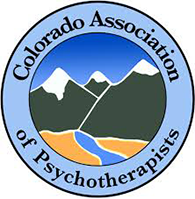Friday afternoon. End of the week. Having coffee with a friend. He looks a bit weary. Catching up; reviewing the past year; sharing our excitement for the coming year. We touched on my blog last week about disappointment. He said, “I once had a business coach that told me that he would only work with me if I was willing to forgive ________. Otherwise, he wouldn’t work with me. Today I know some of the most amazing things in my life would have never happened, if I hadn’t forgiven __________.”
Wow! Really? He went on to say that was one of the most transformational shifts he has ever experienced. Today is he abundantly wealthy in all arenas of his life. I respect him.
So what does that really mean? And how is it done? How do we get released from the bondage of resentment?
It’s done inside. It’s not easy. The greater you’ve been betrayed, the greater the challenge.
Don’t rush this process. Stop rationalizing. Be ready to do the necessary transformative work.
- State clearly how you’ve been wronged. (This is always the easiest part because you’ve probably reviewed it in the theatre of your mind, on repeat, several times.)
- Who wronged you?
- When?
- Where?
- How?
- How often?
- What resulted?
- How were you hurt?
- What did you lose?
2. Explore how this impacted you on the inside.
- How did you see yourself differently after this experience?
- What has changed about your beliefs or values?
- How have you been strengthened?
- How have you been weakened?
- What has become toxic inside of you?
- What did you learn about yourself?
3. Evaluate the positive outcomes you have believed were the result of holding on to resentment.
- Feel stronger?
- Feel righteous?
- Able to set clear boundaries?
- Avoid repeating same mistake of involvement or attachment?
- Maintaining self-respect and dignity?
- Protecting yourself from future harm?
4. Observe the negative results experienced in holding on to resentment.
- Discomfort?
- Restlessness?
- Insomnia?
- Toxic rumination?
- Anxiety?
- Depression?
- Digestive issues?
- Lack of clarity?
- Self-sabotage?
- On-going negative encounters?
- Taking it out on others?
5. Consider there is a much better way to feel stronger, feel righteous, set boundaries, avoid repeating the same mistakes of involvement or attachment, maintain self-respect and dignity, and protect yourself from future harm.
6. To free yourself from toxic resentment, first imagine what would be different in your life.
- How would your energy change?
- Relationships?
- Family?
- Health?
- Finances?
- Inner peace?
- Authentic strength and power?
7. Grieve.
Yes, grieve. And grieve some more. Honor your loss. Feel it deeply. The grief will subside. Don’t rush and don’t get bogged down. Keep moving through your pain. You deserve healing.
8. Evaluate your participation.
Own fully your responsibility. Seek to learn, cultivate wisdom, build resilience, and gain clarity in order to avoid unnecessary suffering in the future.
9. True forgiveness now begins.
Open up a conversation, if appropriate. Talk it out. Talk it through. This takes courage. You can only manage how you show up. You cannot control the outcome.
If that’s not an option, then get it clear in your own heart and mind. Here’s how it looks. You know you’ve forgiven when –
- Thinking about the experience, you remember clearly, but the toxic emotions and actions have subsided. No more bitterness, resentment, retaliation, passive-aggression, back-biting, or snarkiness.
- You are at peace with yourself, knowing you’ve done all you are able to do to make amends.
- You take responsibility for your own participation, resolving to show up in a better version of yourself, and you feel proud of yourself for doing so.
- You are more relaxed.
- You sleep better.
- Rumination has stopped.
- You are less anxious.
- You are no longer depressed.
- Your self care and health has improved.
- You are more clear and focused, looking to the future more positively.
- You’re attracting healthier, more positive people into your life.
- You avoid perpetuating negative encounters
- Others like to be around you.
- You have more energy.
- You’re more lighthearted and fun.
- You own the truth about your experience.
- You set clear boundaries.
- You avoid repeating toxic, unproductive patterns.
- You feel restored self-respect and dignity
- You have become street-smart with an open heart.
Forgive and prepare yourself for greater mercy, love, happiness, fun, hope, gratitude, optimism, humor, joy, enthusiasm, and faith.
And of course, this same process is how you forgive yourself.
[/fusion_text][/fusion_builder_column][/fusion_builder_row][/fusion_builder_container]

